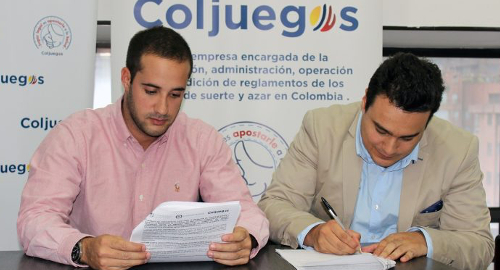 Colombia has issued its 16th online gambling license, while nearing the completion of its first inventory of all land-based slot machines.
Colombia has issued its 16th online gambling license, while nearing the completion of its first inventory of all land-based slot machines.
Late last week, local media reported that Colombia’s Coljuegos gambling regulatory agency had issued an online gambling license to Servicios Distrired SAS, part of a Medellin-based group with a 15-year history of offering “mass consumption products aimed at the traditional Colombian market, mostly virtual.”
The company plans to offer sports bets via the Megapuesta.co domain, which currently offers up only a ‘maintenance’ page that contains the single word: “Soon…” The license is valid for a five-year term.
Coljuegos president Juan Pérez Hidalgo celebrated the regulator’s latest licensee, noting that the country’s licensed online gambling operators had generated revenue of nearly COP23b (US$7.4m) for the government in the first nine months of 2018. Hidalgo said this sum would help underwrite health care services for around 29,000 local residents.
Hidalgo also claimed that the regulator’s online licensees had so far registered over 1.5m customer accounts through the end of September, while warning that online gambling operators who cater to the Colombian market without acquiring a Colombian license could face significant financial penalties and up to eight years in prison (assuming these operators ever set foot on Colombian soil).
In 2016, Colombia became the first South American jurisdiction to pass online gambling legislation, and Coljuegos issued its first online gambling license the following year. Hidalgo previously suggested that Coljuegos would issue 17 licenses before 2018 was in the books.
Meanwhile, Coljuegos continues its efforts to bring the country’s land-based gambling market under control. As of last week, Coljuegos’ first attempt at quantifying the nation’s electronic gambling machines (EGM) had registered nearly 82k slot machines in 2,355 venues, which Coljuegos claims represents 97% of the national EGM market.
The regulator has marked each registered EGM with a QR code, which Coljuegos claims will allow players to verify that the machine on which they’re playing is operating legitimately.